

Advancements in Robotic-Assisted Mitral Valve Surgery at Barnes-Jewish Hospital
In October 2024, Tsuyoshi Kaneko, MD, WashU Medicine division director of cardiothoracic surgery at Barnes-Jewish Hospital, performed the hospital’s first robotic-assisted mitral valve surgery.

Aortic Valve Disease in Primary Care: What to know, what to do and when to get concerned
Dr. Marc Sintek shared an overview of Aortic Valve Disease as it relates to patients presenting to a primary care practice.

At Barnes-Jewish Hospital, A Wider Organ Donor Pool Saves Lives
The DCD program at Barnes-Jewish Hospital and WashU Medicine was initiated in response to the increasing waiting periods for heart transplants, despite the 2018 changes in organ allocation aimed at reducing wait list mortality.

Advanced Heart Valve Procedures Expand Treatments for Patients With Limited Options
Heart specialists at the Washington University and Barnes-Jewish Heart & Vascular Center in St. Louis, Mo., are pioneering advances that enhance the quality of life for patients who have historically suffered debilitating symptoms with ...

Vascular Surgery and Non-Healing Peripheral Wounds
Vipul Khetarpaul, MD, presents several cases on PAD and Non-Healing Peripheral Wounds.

Complex Percutaneous Coronary Intervention (PCI) 2023
Dr. Marc Sintek, MD provides an overview of PCI, how we do it, and why that matters. Dr. Sintek will also share some case examples and some of the complex PCI tools used.

Aortic Surgery: Personalized Medicine with a Team Approach
Dr. Puja Kachroo, MD shares about the evolution of Aortic Surgery including valve sparing procedures and aortic arch procedures.

Multidisciplinary Limb Preservation Program Saves Steps to Help Save Limbs
The Washington University Limb Preservation Program was established to connect patients facing amputation with all the medical specialists they will need to save their limb, in the shortest amount of time.

Clinician’s Guide to Cardio-Oncology: Best Practice and Future Directions
Hosted by the Washington University and Barnes-Jewish Heart & Vascular Center, “Clinician’s Guide to Cardio-Oncology: Best Practice and Future Directions” was presented during the AHA Scientific Sessions on November 10, 2018 in Chicago, Illinois.

Leveraging Big Data and the EHR to Better Inform the Practice of Cardio-Oncology
Washington University cardiologist at Barnes-Jewish Hospital, Joshua Mitchell, MD, discusses the continually expanding field of available cancer therapies.
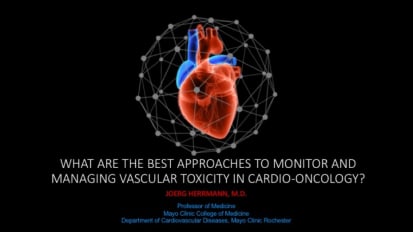
What are the Best Approaches to Monitor and Manage Vascular Toxicity in Cardio-Oncology?
Mayo Clinic cardiologist, Joerg Herrmann, MD, provides a review of the three main types of presentation of vascular toxicity seen with chemotherapy: acute vasospasm, acute thrombosis, and accelerated atherosclerosis.

Transcatheter Aortic Valve Replacement (TAVR): Overview
Physicians at the Washington University and Barnes-Jewish Heart & Vascular Center have extensive experience and expertise evaluating and treating people who may need transcatheter aortic valve replacement (TAVR).

Microvascular Disease: Detection and Treatment Strategies
The microvasculature can be imaged at the bedside with continuous infusion of microbubbles (ultrasound contrast agents) or a slow bolus injection.

Revascularization Controversies in Simple and Complex Coronary Artery Disease
Coronary atherosclerosis is a diffuse vascular process and a life-long disease where optimal medical therapy is the foundation for all patients with CAD.

Precision Medicine at the Extremes of Heritability
Rahul Deo, MD, PhD and Assistant Professor in the Division of Cardiology at UCSF discusses how a type of facial recognition-based strategy is possible for segmentation within an echocardiogram.
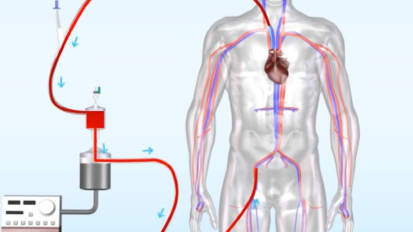
AngioVac Procedure: Treatment for Deep Venous Thrombosis
Dr. Mohamed A. Zayed discusses how the AngioVac device offers an alternative to existing therapies that treat venous thromboembolism.
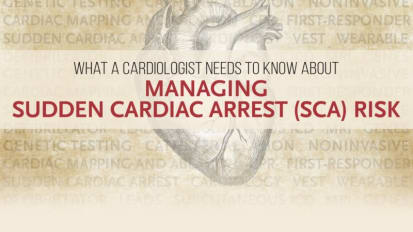
Too Soon? Too Late? When to Refer for Catheter Ablation? – 2016 AHA Symposium, Part 5
Dr. Daniel Cooper discusses the importance of choosing the right patient at the right time for catheter ablation, minimizing ICD shocks and erring on the side of early referral to maximize the benefits for the patient.
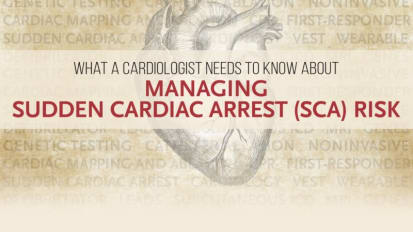
Do the Genes Fit? When to Order Genetic Testing? – 2016 AHA Symposium, Part 4
Dr. Nathan Stitziel discusses when to order genetic testing, how the patient should be evaluated for genetic testing and the genetic causes of SCA.
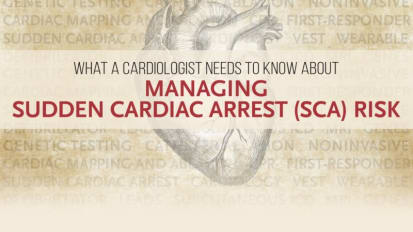
Yes or No: Can My Patient With an ICD Have an MRI? – 2016 AHA Symposium, Part 3
Dr. Pamela K. Woodard discusses at the AHA Conference if patients who have an ICD can have an MRI, the types of ICDs for MRI scanning and the risks of MRI scanning patients with a CIED.
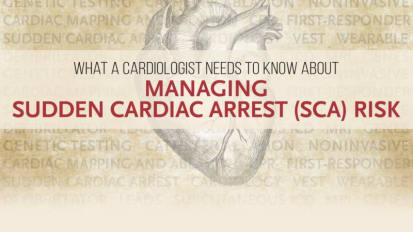
Where Did the Leads Go? When is Subcutaneous ICD the Right Choice? – 2016 AHA Symposium, Part 2
Dr. Mitchell N. Faddis discusses how subcutaneous ICD shocks avoid myocardial injury, if implantation is safe and effective and which patients are the ideal candidates for an SICD.

Optimal Medical Treatment: The Holy Grail - Cardiology Grand Rounds
University of Alabama cardiologist Vera Bittner, MD, MSPH, discusses the barriers and opportunities in the implementation of optimal medical treatment.

Atrial Fibrillation: Impact and Future Developments - Cardiology Grand Rounds
Cleveland Clinic cardiologist Bruce D. Lindsay, MD, FACC, FHRS, gives the viewer insight into the future of atrial fibrillation. Dr. Lindsay discusses the mapping of AF, types of AF and what advances in technology may alter current approaches to ablation

Heart Failure in African Americans: A Still Unresolved Question – Cardiology Grand Rounds
Northwestern University cardiologist Clyde W. Yancy, MD, MSc, discusses heart failure in African Americans, who have a disproportionate burden of heart disease. Dr. Yancy discusses how there is a need for treatment to reduce the effects ...
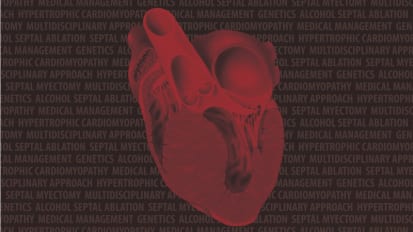
Preventing Sudden Cardiac Death in HCM - 2015 AHA Symposium, Part 2
Learn the details of sudden death in HCM to aid in what is often a sobering discussion for patients
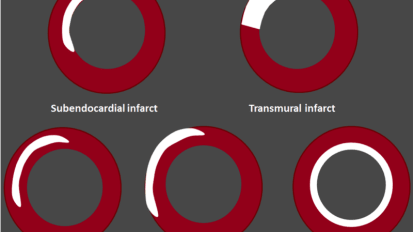
Coronary Microvascular Function and Diastolic Heart Failure in Women – Cardiology Grand Rounds
Coronary Microvascular Function and Diastolic Heart Failure are two epidemics that can explain the disparities in cardiovascular outcomes in women.
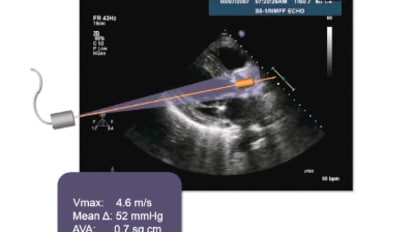
Progress in Aortic Stenosis: New Insights, New Options, New Challenges – Cardiology Grand Rounds
The advent of transcatheter valve therapies has opened up new treatment options and new challenges in patient selection for valve replacement.
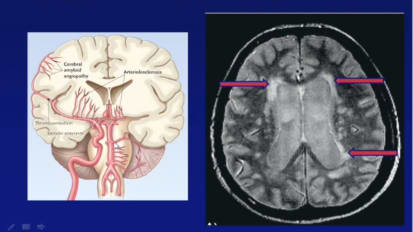
Abnormal Blood Pressure Regulation and its Consequences in Elderly People – Cardiology Grand Rounds
This presentation will review age- and hypertension-related changes in blood pressure regulation and how they impact the development of cognitive and mobility impairments in advanced age.

Calcific Aortic Stenosis: Key Concepts and the Road Ahead – Cardiology Grand Rounds
Dr. Philippe Pibarot discusses calcific aortic stenosis, looking at key concepts and towards the future.

The Future of Clinical Cardiovascular Research – Cardiology Grand Rounds
Dr. Eric Peterson, Director, Duke Clinical Research Institute, presents The Future of Clinical Cardiovascular Research.

Marye Gleva, MD, Cardiologist, Heart Rhythm Specialist
Dr. Marye Gleva is a cardiac electrophysiologist at the Washington University and Barnes-Jewish Heart & Vascular Center, specializing in heart arrhythmia disorders.

Limitations of the Coronary Angiogram: More than Meets the Eye – Cardiology Grand Rounds
Dr. William Fearon of Stanford University Medical Center presents Limitations of the Coronary Angiogram: More than Meets the Eye.

JNC 8 et al.: Is Evidence-Based Medicine the Only Way? – Cardiology Grand Rounds
Dr. George Bakris of the The University of Chicago Medicine presents JNC 8 et al.: Is Evidence-Based Medicine the Only Way?
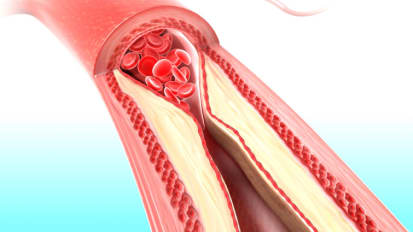
Updated Risk Assessment Guidelines for Cardiovascular Disease – Cardiology Grand Rounds
Dr. Donald M. Lloyd-Jones of Northwestern University Feinberg School of Medicine presents Updated Risk Assessment Guidelines for Cardiovascular Disease.
